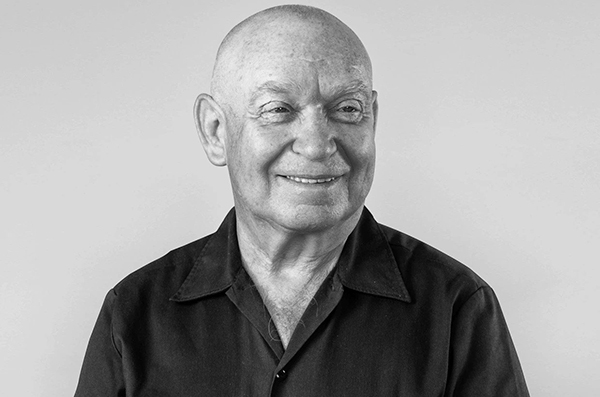
Photo courtesy of Millikin University
Millikin University Welcomes Holocaust Survivor to Represent Thomas W. Ewing Lectureship
February 2, 2023
Millikin University had the pleasure to welcome Sami Steigmann to its 2023 Thomas W. Ewing Lectureship.
Steigmann is a Holocaust survivor, and he hails from New York City. He was born on December 21, 1939, in Czernowitz, Bukovina, currently known as Ukraine.
From 1941 to 1944, Sami and his family spent time in Mogilev-Podolsky, a labor camp in an area known as Transnistria. Because he was too young to work, he was subject to Nazi experimentation in the early years of his life. Although he has no recollection of these experiments, he still suffers from the side effects they caused.
Although the Holocaust is an extremely difficult topic to discuss, Steigmann believes that it is a story that must continue to be told.
“We must make sure that the horrors of the Holocaust are known and never forgotten,” he said. “Education is not knowing about the event; it’s understanding how many Germans were told that it was required of them to carry out the actions. It’s learning how to spot history repeating itself.”
Steigmann also desires that young people acknowledge that the history of the Holocaust is very real and could repeat itself if stories such as his are not shared.
“There are many young people who do not believe that the Holocaust happened,” he said. “All of you are my witnesses that the Holocaust happened.”
Although his story is a tragic one, Sami does not only want to be known as a victim of the Holocaust. As a motivational speaker, he holds his hope very close to his heart.
During his schooling, Steigmann explained that although he didn’t have much material wealth, he and his friends were able to improvise when they needed to.
“We made soccer balls from rags,” he said. “People say, ‘mind over matter.’ I say, ‘If you don’t mind, it doesn’t matter.’”
Steigmann also warns that using improper language surrounding the Holocaust can prevent false narratives about the event.
“I do not like the word anti-Semitism,” he said. “Semite does not only represent Jews, but also Ethiopians and other groups as well. Use the terms ‘anti-Jew’ or ‘Jew-hatred.’”
Josef Mengele once said, “A lie told long enough becomes truth.” Steigmann recognizes this in today’s culture.
“Be true to yourself,” he said. “Be very proud of your heritage and tell your grandchildren everything about your heritage.”
Throughout Steigmann’s life, he has always managed to find a smile no matter how difficult the situation he finds himself in is. The three most important things in his life are as follows: The joy of parenting, overcoming hate and being homeless. Although he was homeless for a time, he believes that the experience has only allowed him to appreciate his life much more.
“I live in New York with an income of $1,514 per month,” he said. “Despite this, I still smile.”
Even in the worst of circumstances, Steigmann knew that he would never be a failure.
“You are only a failure if you don’t try,” he said. “There are many opportunities that you have in your life, so be sure to take advantage of them.”
The last, but certainly not least, important point that Steigmann made was one of forgiveness. He made a trip to Germany after receiving an invitation to meet the descendants of some high-ranking Nazi criminals.
“They are not guilty of what their grandparents did,” he said. “I found that we had more similarities than differences. There is no room for hatred in this century.”
Steigmann’s message is an extremely important one, and it is vital that stories such as his and other survivors are told. Be sure to visit Steigmann’s website, www.samispeaks.com, to find more information about his incredible story.